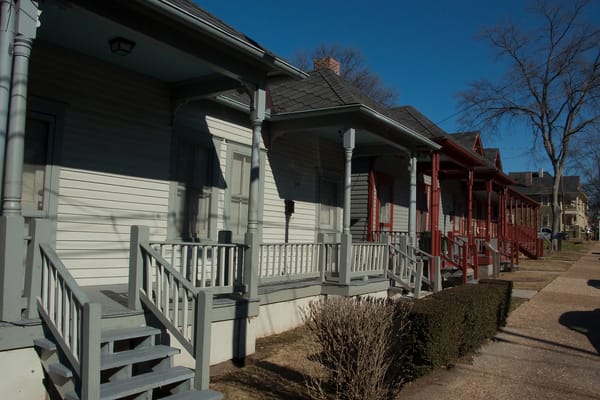Italy's Second Generation Migrants Fighting for Citizenship Recognition

Despite being born on Italian soil, second-generation migrants in Italy are not automatically eligible for Italian citizenship. Until the age of 18, when they are allowed to apply to become Italian nationals, these “Italians without citizenship” are living in a legal limbo. A summer of Black Lives Matter protests has exposed racial injustices in Italy and spurred renewed vigor among children born to migrant parents to fight for automatic citizenship.
Children born in Italy only receive automatic citizenship if at least one parent is an Italian citizen. Those born to migrant parents must wait until the age of 18 to begin their citizenship application. Even then, the application is subject to strict conditions and the elaborately bureaucratic process can take four years or longer. There are over one million second-generation migrants who were born in Italy or arrived at a very young age who do not have citizenship, according to Dossier statistico immigrazione 2019.
Italians without citizenship
This refusal to grant automatic citizenship to second-generation migrants carries a powerful socio-political subtext, fomented in particular by Italy’s right-wing League party. Despite having the same education, language and cultural references as children born to Italian parents, second-generation migrants are made to feel different. “It is a condition of a complete lack of peace of mind,” said Paula Baudet Vivanco, originally from Chile and president of the group Italiani Senza Cittadinanza, or Italians Without Citizenship. “This is something that really conditions our upbringing in our country.”
Their situation is aggravated in particular by right-wing anti-immigration rhetoric. Despite the vital role of undocumented migrants in sectors such as agriculture, leader of the League party Matteo Salvini frequently brands illegal migrants criminals and delinquents. In a recent Tweet he wrote, “Thanks to the reckless dismantling of our security decrees and the open ports wanted by this government, the increase in the manpower of fake refugees for crime is assured. Shameful.” Second-generation migrants often find themselves grouped together with illegal migrants in public consciousness. If a woman and of color, there is even a danger of getting stopped in the street and assumed to be a prostitute.
Italiani Senza Cittadinanza formed in 2016 with the aim of helping second-generation migrants navigate the bureaucratic process of citizenship application. A 1992 law stipulates that anyone born in Italy can apply for citizenship at the age of 18 provided they have lived there legally “without interruption.” However, the window of opportunity to begin the application is brief. The process must be started before the applicant reaches the age of 19. If the applicant misses that window, citizenship can also be given on grounds of legal residency for a decade and a minimum income of €8,500 a year over three years.
On the fringes of society
For second-generation migrants, living without citizenship is extremely restrictive. “We don’t have the right to movement, we don’t have the right to vote,” explained Vivanco in a hearing with the Constitutional Affairs Committee of the Italian parliament to discuss the Italian nationality law. “I myself voted for the first time at the age of 33.” The lack of mobility limits job opportunities along with other restrictions, such as being barred from working for public institutions.
In addition to these legal issues, lack of citizenship has psychological implications for second-generation migrants. Their so-called “country of origin” is somewhere where “often we have not gone back to. It is no longer the country where we dream, we work, we grow up, where we have studied. It is not the country where we put down our roots,” as Vivanco described. Yet the country that does have the responsibility for shaping their culture and language is not one in which they are accepted by law or by society.
Yassine El Ghlid, who obtained Italian citizenship at aged 21, recently set up a new political party to fight for migrant rights. “We’re fed up with having to delegate questions that concern us to other people,” he said in an interview. “Because when it comes to migration or social inclusion, only those who have been through similar experiences should have their say on it.”
The party is beginning by participating in local elections but hopes to become a nation-wide political party. Considering regular immigrants contribute an estimated 9% to the country’s GDP, El Ghlid and his party feel these people should have the right to vote and choose their own political representatives.
Black Lives Matter
In May this year, African-American George Floyd died after a policeman kneeled on his neck for over eight minutes. The event triggered a wave of protests around the world, including in Italy. The demonstrations gave a platform to people who felt underrepresented in Italian society. They spurred on Italy’s second-generation migrants to hold protests for their own issues too.
In July, Italian Senza Cittadinanza held a demonstration in Rome. Spokesperson Jovana Kuzman said, “We are over a million children who have grown up in Italy, but still today our identity is not recognized. We are prisoners of the current law 91 of 1992 for the concession of citizenship, an outdated law that is incapable of responding to the needs of a society that has changed considerably since the 90s.”
The group is particularly vocal about the length of time applications take to be processed in Italy. “What officials from other European countries have to do in a year, accept or reject a citizenship application, for Italians it takes four years. That is forty-eight months, 1460 days, that our lives are held in suspense and that is added to all the years in which we grew up in this Italy of ours without being recognized as part of it.”
Right of soil, right of culture
Jus soli, or right of soil, has become the rallying cry of second-generation migrants seeking birthright citizenship. But groups like Italiani Senza Cittadinanza are also fighting for the rights of those who come to Italy at a young age, who have even less claim to citizenship. For this reason, in addition to jus soli and jus sanguinis, they propose a third category for eligibility. Jus culturae, meaning cultural right, would see citizenship bestowed through cultural assimilation, namely the Italian educational system. Laura Boldrini, a member of the Democratic Party and former President of the Chamber of Deputies in Italy, proposed a bill modifying the 1992 law in favor of jus culturae. If approved, it would allow children under 10 to receive Italian nationality if they have been living in Italy for five years and have completed at least one scholastic cycle. For those who arrive in Italy under 10 years of age, it would ensure eligibility for citizenship provided they are resident in Italy until the age of eighteen and submit their proposal before they turn 19.
For second-generation migrants, lack of citizenship means an incomplete identity and a life of uncertainty. Kuzman, who also spoke at the hearing with Vivanco, said, “I have lived with the terror that for some bureaucratic reason or simply if my parents had lost their jobs, I would be forced to return to Serbia.”
Featured Image is Florence, Italy City Streets




